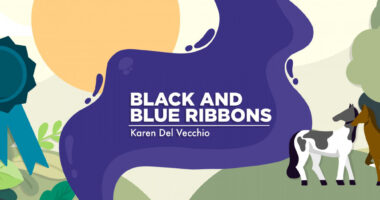Farm Chores Are a Unique Form of Therapy

While you likely know by now that I have horses, you may not realize that I live on a small, private, horse-breeding farm. The owner is active duty in the military, so I have my own place on the farm that allows me to help whenever needed. For non-horse people, the idea of horse farm chores is probably about the worst thing they can imagine. Trudging through the mud in the heat and cold, dumping and scrubbing water troughs, cleaning stalls, and sweeping aisleways are all part of the daily chores of a horse farm. To me, it’s a unique form of therapy.
Many of the chores that I do are not inherently easy for me with my Ehlers-Danlos syndrome (EDS), but like most other things in my life, I’ve found a way to adapt. Cleaning stalls used to be very tough on my shoulder, but through trial and error, I worked out a method to engage my core muscles as I lift and swing the pitchfork into the wheelbarrow to reduce the stress on my damaged muscles. When the mud is thick, I’ve learned that it’s easier for me to pull a wheelbarrow than to push it. The repetitive motion of sweeping can be a problem, but switching back and forth from right-handed to left-handed action allows each side to get a break.
Are there days when it’s hard on me? Absolutely. I’ve learned that sometimes it’s best to cut my losses and ask for help, as stubborn as I am. Here at “home farm,” as I call it (I board my horses at a competition barn across town), I’m lucky to have some amazing neighbors. When I first moved out here, I noticed that people still “stop by” as they did in the old days. I finally asked someone why, and the answer was surprisingly simple: Farm life can be dangerous, and it’s always good to know that people are looking out for you.
In the almost five years I’ve lived in this farming community, I’ve found that to be true. Everyone goes out of their way to help one another: They’ll pull your truck out of the mud late at night, help you to walk a sick horse while you wait for the vet, and lend a hand when the fence needs mending. Even those of us who love farm life have our bad days, just like when you’re sick of a job that you enjoy 99 percent of the time. Those are the days you remember the friends and neighbors who are always ready to help each other, and this thought helps you to push through until the sun shines again.
As I’ve mentioned previously, the unique bond between horses and humans goes beyond what most people experience with their household pets. They are incredibly intelligent and attuned creatures who can read human emotions better than most people can. Being around them and their calm energy is a balm for the soul. A well-kept farm radiates peacefulness, and the routine of chores leaves little room for the mind to wander. The work may be mundane and monotonous, but it’s always the same. And in a world that’s continuously and rapidly changing, that sameness is a comfort. On the days when I’m sore or overtired from my EDS, just being around the horses can help me to rediscover my center and get ready to face tomorrow.
***
Note: Ehlers-Danlos News is strictly a news and information website about the disease. It does not provide medical advice, diagnosis, or treatment. This content is not intended to be a substitute for professional medical advice, diagnosis, or treatment. Always seek the advice of your physician or other qualified health provider with any questions you may have regarding a medical condition. Never disregard professional medical advice or delay in seeking it because of something you have read on this website. The opinions expressed in this column are not those of Ehlers-Danlos News or its parent company, Bionews Services, and are intended to spark discussion about issues pertaining to Ehlers-Danlos.







Lisa
I wonder why we don't see the researchers mention MCAS and dysautonomia, which is fairly common among patients with hypermobility. Is it possible that the researcher's and doctors' lack of knowledge about MCAS and dysautonomia has led them to misattribute the mental health issues? For example, personally in our family when we've had too much histamine, our mood changes within hours. In bad cases it triggers a drop in our blood pressure and sometimes neuropathic pain. So, in our experience, the researchers may have simply found that a lot of hypermobile patients still haven't had their physical symptoms properly diagnosed and treated rather than having somatic symptoms.